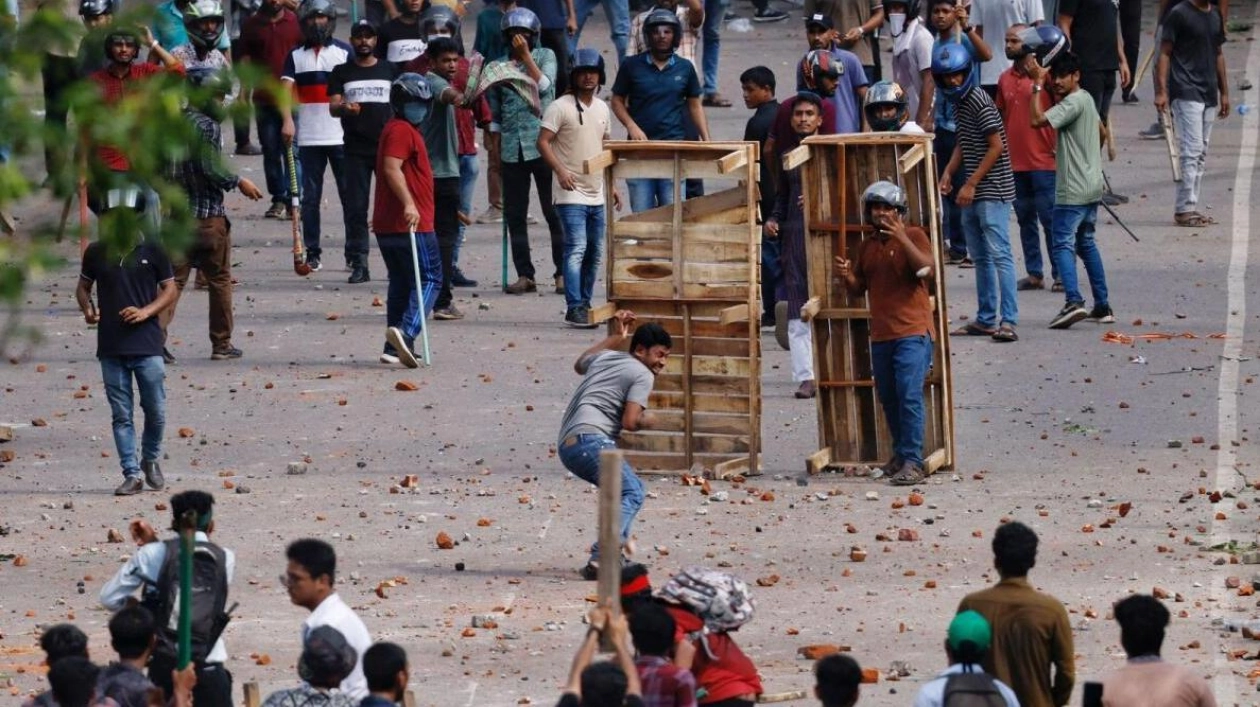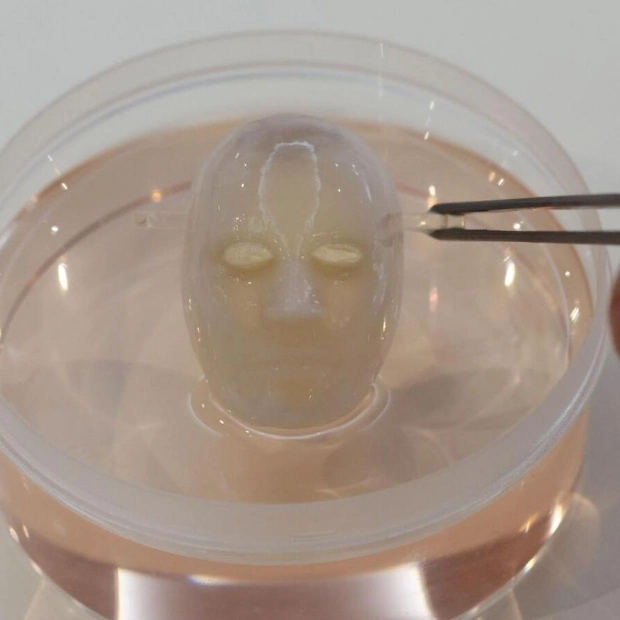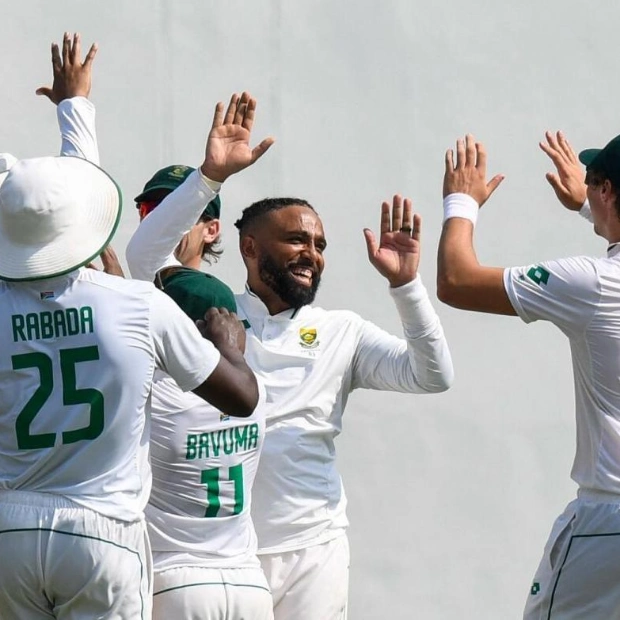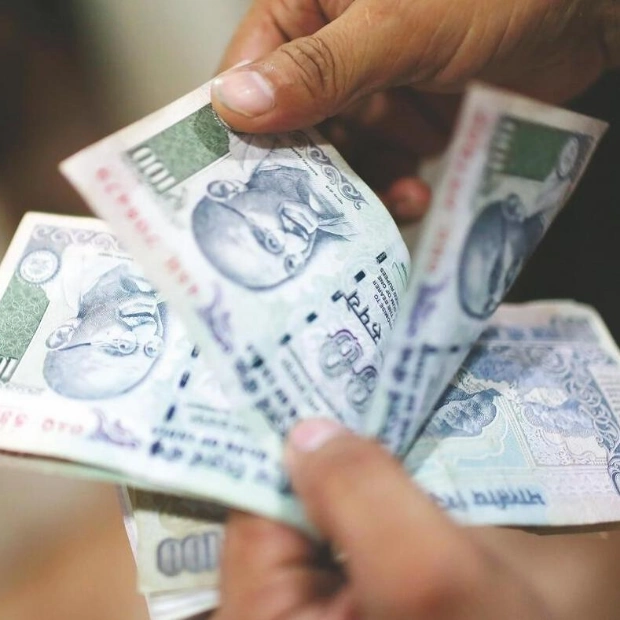At least three individuals lost their lives in Bangladesh on Tuesday amid fierce confrontations between opposing factions concerning coveted government job quotas, according to police reports. This occurred a day after over 400 people sustained injuries. Police resorted to using tear gas and rubber bullets as students advocating for reduced quotas engaged in skirmishes with counter-protesters supporting the ruling Awami League party, employing sticks and rocks in their altercations. This escalation of violence comes as efforts to thwart a persistent campaign, which has disregarded appeals from Bangladesh's prime minister and highest court for students to resume their studies, intensify. For weeks, students have been conducting almost daily demonstrations, urging the government to adopt a merit-based system instead. The current quota system allocates more than half of high-paying civil service positions to specific groups, including offspring of heroes from Bangladesh's 1971 war of liberation from Pakistan. Critics argue that this system primarily benefits the children of pro-government factions that support Prime Minister Sheikh Hasina, 76, who secured her fourth consecutive term in January following an election devoid of authentic opposition. On Tuesday, opposing student factions paraded in various areas around Dhaka, with some groups hurling bricks at each other.
"Students were demonstrating in at least a dozen locations within the capital," stated Faruk Hossain, spokesperson for Dhaka Metropolitan Police, in an interview with AFP. Similar demonstrations took place across other regions of Bangladesh, with hundreds of students obstructing railway tracks and highways. In the southwestern port city of Chittagong, a student and a laborer were reported dead, according to Ala Uddin, a police inspector at Chittagong Medical College Hospital. "The laborer sustained bullet wounds, whereas the student had other injuries," Uddin detailed to AFP. In the northern city of Rangpur, police commissioner Mohammad Moniruzzaman informed AFP that a student had perished in the clashes. Although he did not specify the cause of death, he confirmed that police had used rubber bullets and tear gas to disperse the demonstrators. The director of Rangpur Medical College Hospital, Yunus Ali, revealed that "the student was brought to the hospital deceased by other students," noting that "his body exhibited signs of injury." Tauhidul Haque Siam, a student journalist from Rokeya University, alleged that supporters of the ruling party had assaulted protesters against the quotas, with police employing shotguns—typically loaded with rubber bullets or plastic pellets. "Police discharged shots from their shotguns at the protesters," Siam recounted, disclosing that he had also been injured. He asserted that the deceased student had been "killed during the shooting incident," although this claim could not be independently verified. In Dhaka, younger students also participated in the protests. A female student recounted to AFP that the ruling party's youth faction had "assaulted us with firearms, Molotov cocktails, machetes, and sticks." On Monday, protesters claimed they were conducting peaceful marches in Dhaka when they were ambushed by student activists from the ruling party. In the ensuing violence, police inspector Bacchu Mia reported that 297 individuals were treated at Dhaka Medical College Hospital, with 12 requiring hospitalization due to severe injuries. Additionally, over 100 students received treatment at Dhaka's Jahangirnagar University medical center, according to its chief, Shamsur Rahman, and 11 more at the city's Enam Medical College Hospital. "Four people, including a professor who was struck with rubber bullets, remain hospitalized," disclosed Yousuf Ali, a doctor at the Enam center. Monday's incidents marked the most severe violence since the campaign commenced, prompting Amnesty International to call on Bangladesh to "immediately ensure the safety of all peaceful protesters." The US State Department spokesperson, Matthew Miller, also condemned the "violence against peaceful protesters" in a statement that Bangladesh's foreign ministry deemed disappointing.






